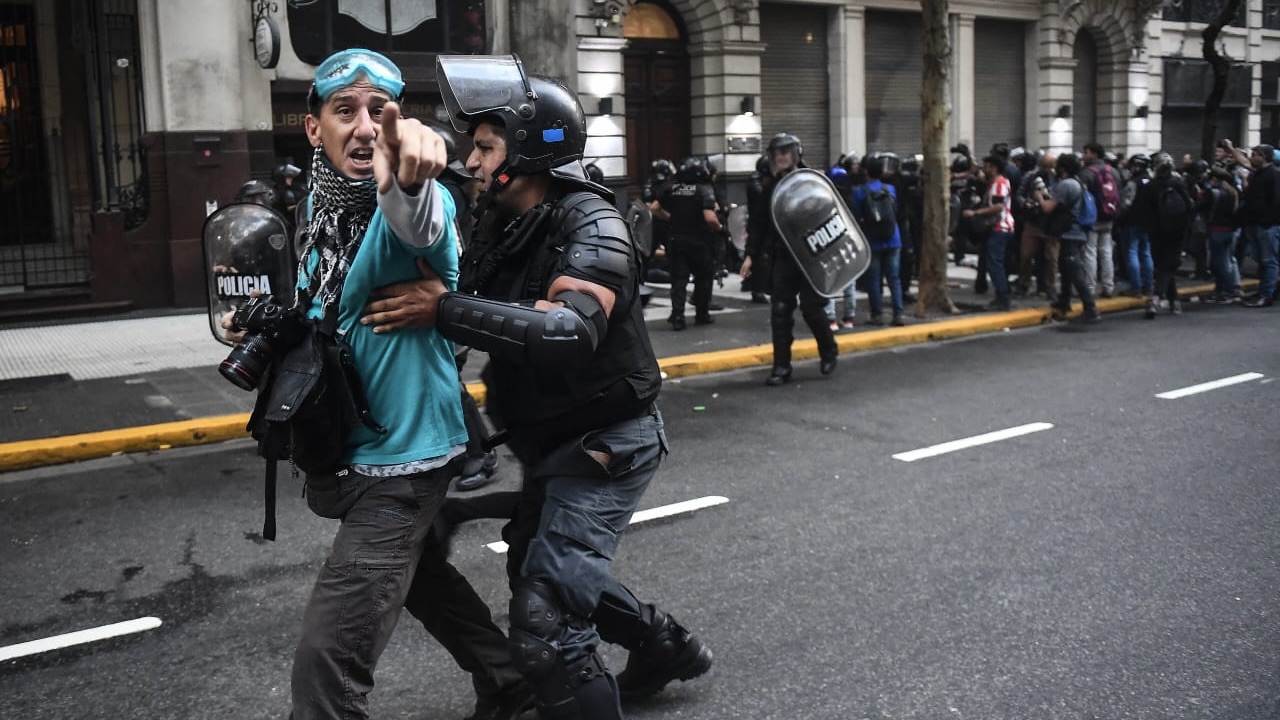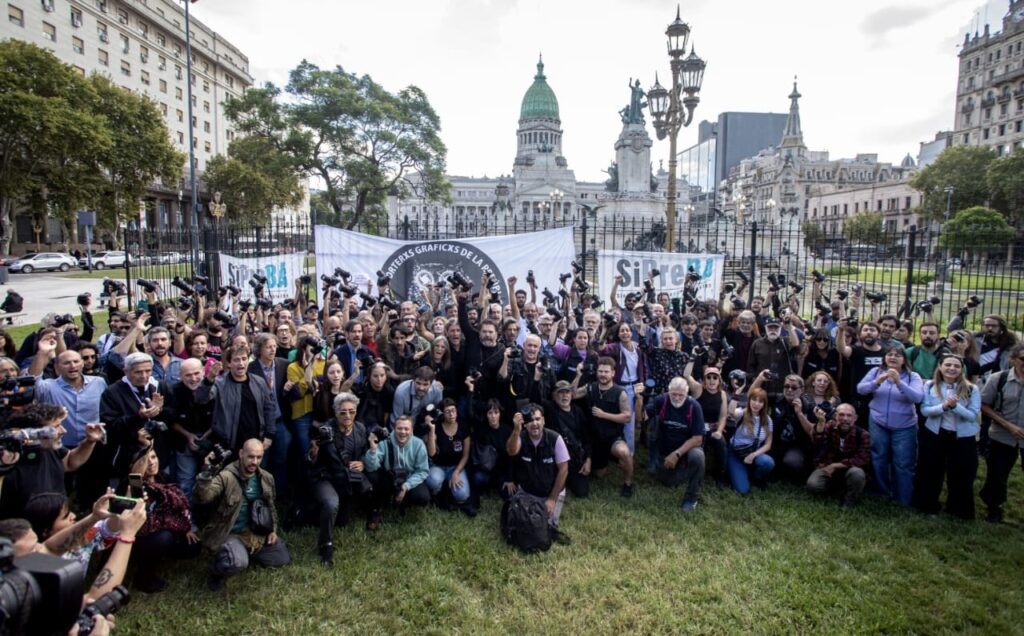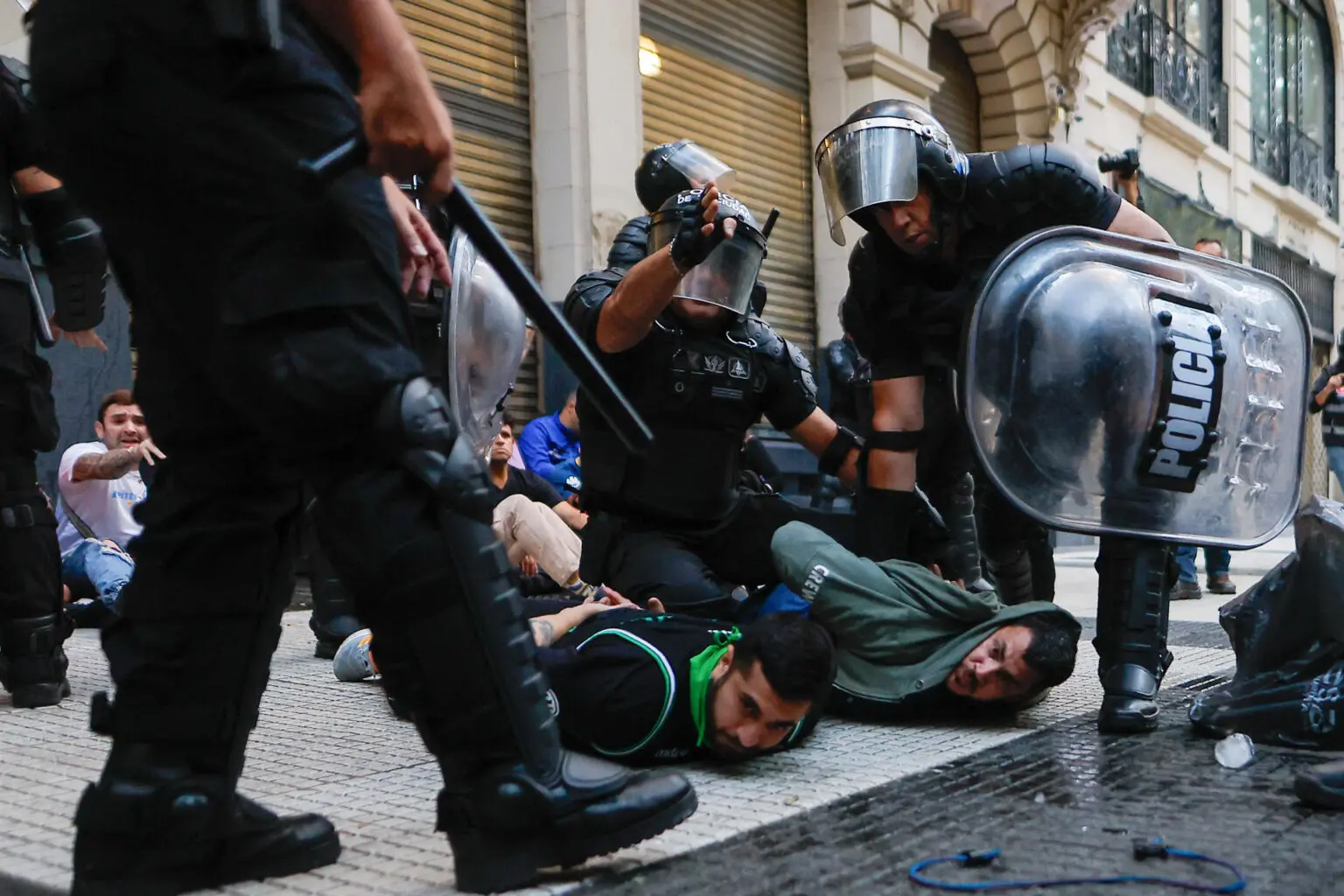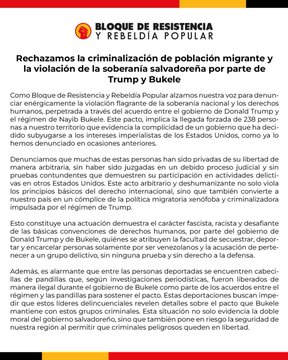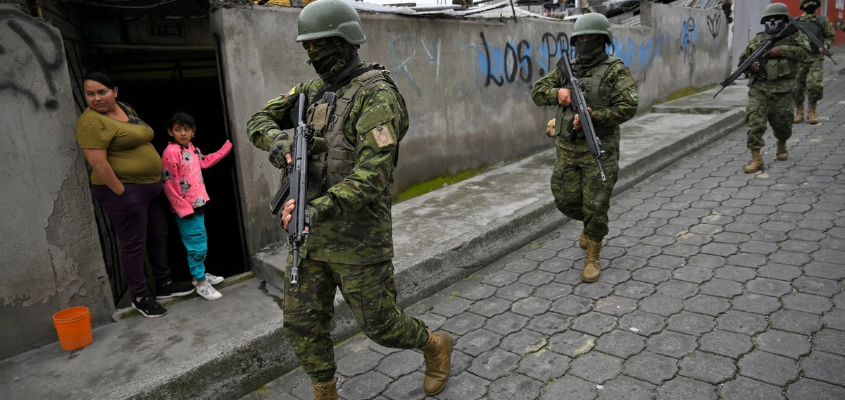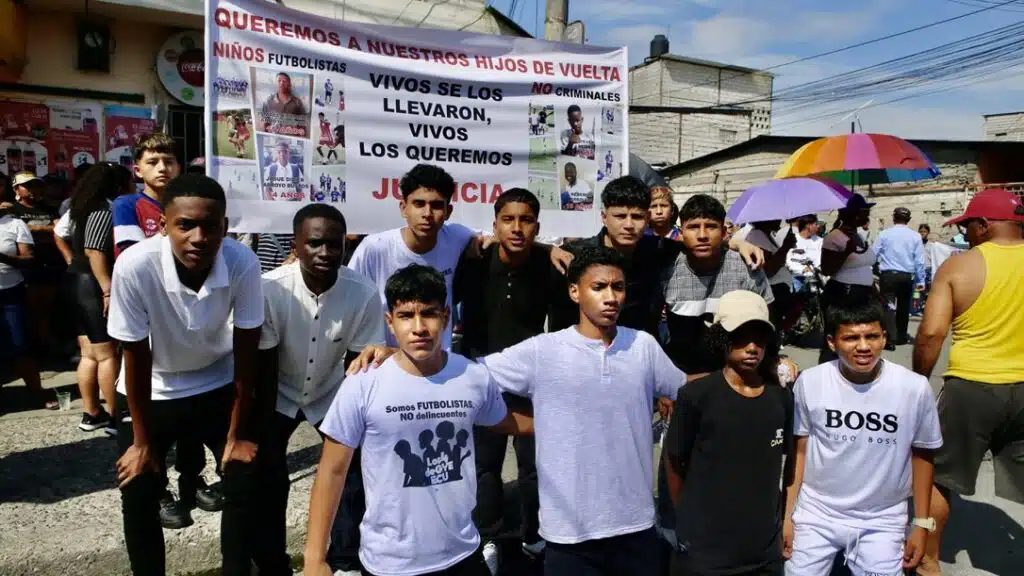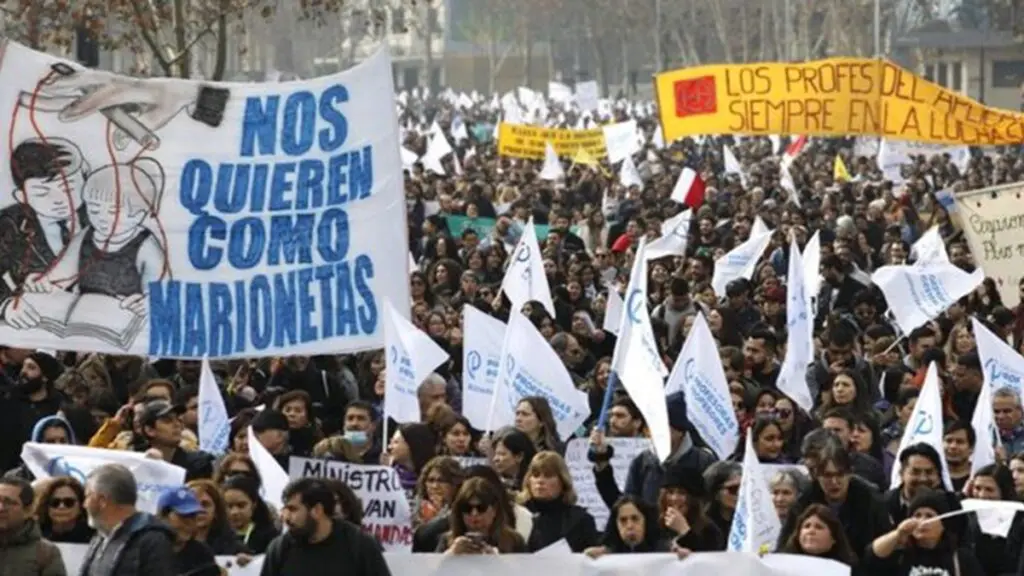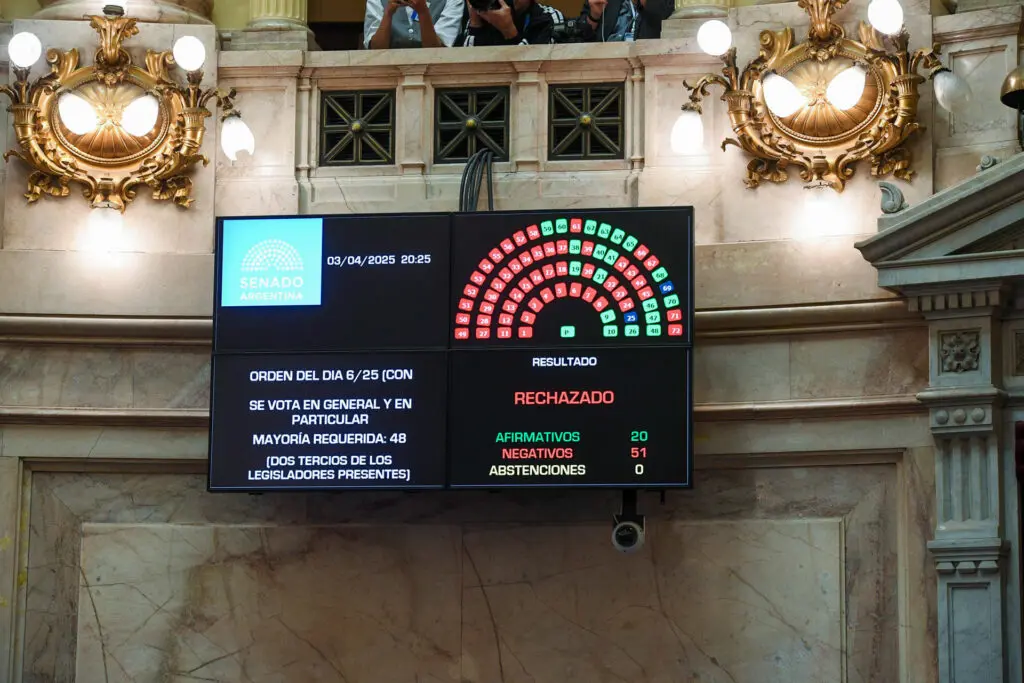March 8, 2025
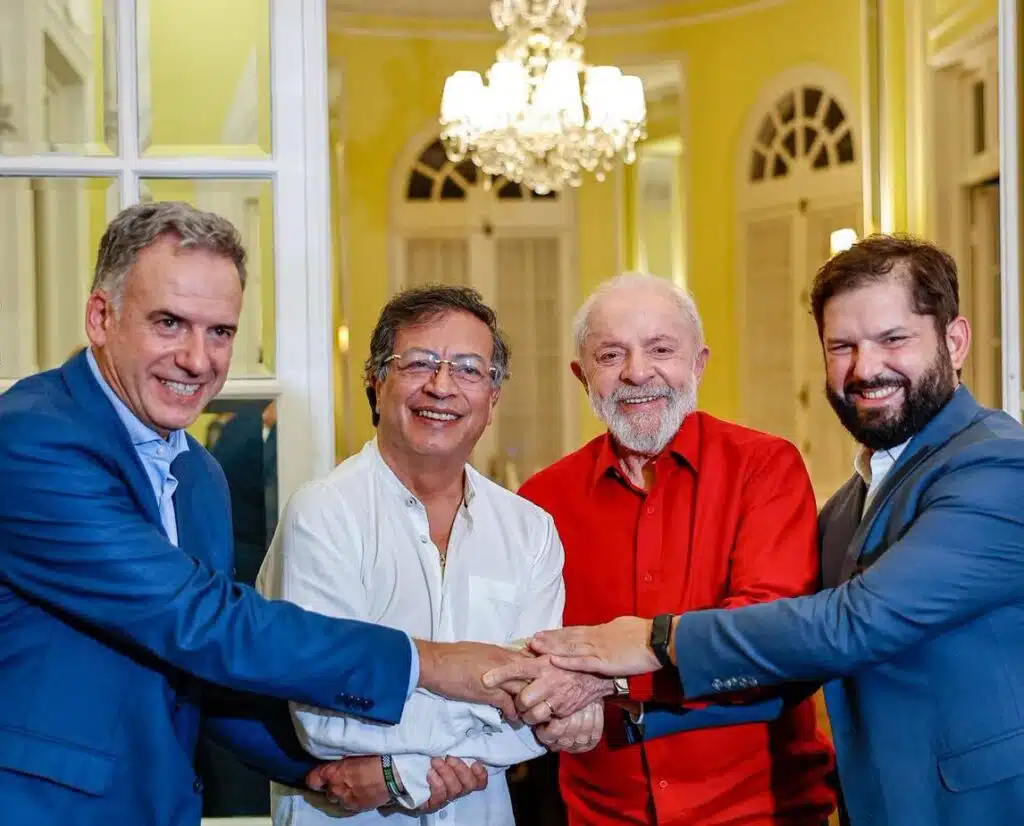
Lula (Center Right) and the newly appointed president of Uruguay, Yamandu Orsi (left), and the presidents of Colombia, Gustavo Petro (Center Left), and Chile, Gabriel Boric (Right). Photo: Alex Ibanez/AFP.
By Jamil Chad – Mar 5, 2025
Brazil, allied with progressive governments in the region, has managed to prevent the Organization of American States (OAS) from being led by an ally of the governments of Javier Milei and Donald Trump.
Brazilian diplomacy has forged an alliance with Chile, Colombia, Uruguay and Bolivia over the weekend and announced its support for Suriname’s candidate, Foreign Minister Albert Ramdin, to occupy the post of secretary general of the organization. The election takes place on March 10.
The Brazilian offensive paved the way for the diplomat to also receive support from Mexico, Canada, Ecuador and other countries. Together with the votes from the Caribbean, which had already been obtained, his slate was practically unbeatable. His advisors believe that he already has 28 endorsements.
As a result, on Wednesday evening, the candidate who had been courting the White House, Paraguayan Foreign Minister Rubén Ramírez Lezcano, withdrew from the race. He also had the support of Argentina, as well as El Salvador.
The conclusion is that, even with possible support from Washington and Javier Milei’s government, he would not have enough votes to be elected.
OAS: strategic for Trump’s ambitions
At the end of 2024, Trump received the foreign minister of Paraguay at his residence in Mar a Lago (Florida). Officially, the meeting took place so that the two could discuss the political situation in Latin America and specific contexts such as Cuba, Nicaragua and Venezuela. But the trip had another purpose: to try to strengthen the Paraguayan’s campaign to succeed Luis Almagro at the head of the OAS.
Trump has not yet openly declared who he will vote for but Ramírez Lezcano was also with billionaire Elon Musk, a figure who has been gaining ground in the decision making of the Trump administration including US foreign policy.
To attract the US vote, Paraguay has moved closer to the American vote on other issues at the UN, as well as adopting a discourse similar to the White House’s position. This includes criticism of China’s offensive in the region, protection of Taiwan’s interests, warnings about Iran and even irregular immigration.
The Paraguayan’s position pleased Marco Rubio, Trump’s chief diplomat, who is the grandson of Cuban exiles and who, over the years, has adopted a harsh tone against progressive Latin American governments, especially Venezuela and Cuba.
Announcing the end of his foreign minister’s candidacy, Paraguay’s president, Santiago Peña, launched a veiled criticism of Brazil.
“The candidacy was very well received and supported by many member states of the organization. However, in recent days and in an abrupt and inexplicable way, Paraguay has been informed by friendly countries in the region, with which we share a common space and history, that they have modified their initial commitment to our country and have decided not to support Paraguay’s bid,” said the president.
“Paraguay, throughout its rich history, has been a country that has always based its positions on such high principles and values, and will not renounce them because of a particular election or situation,” he said.
“Having analyzed all these elements, I have made the decision to withdraw the candidacy of Foreign Minister Rubén Ramírez Lezcano, a diplomat of vast experience and well-deserved prestige, not only regionally, but worldwide, for the OAS General Secretariat,” added Peña.
If the OAS is viewed with suspicion by an important wing in Latin America and is not the key to Brazil’s regional integration strategy, the White House’s vision is to use the Washington-based organization to serve its interests in the hemisphere. 60% of the OAS budget comes from American contributions, and Trump’s advisors explained to UOL that they want to ensure that these resources fulfill the mission of strengthening their position in the region.
https://orinocotribune.com/brazil-rejec ... -head-oas/
Marco Rubio’s Secondary Role in the US Government
March 7, 2025

US Secretary of State Marco Rubio (left) sitting next to President Donald Trump (right). Photo: Andrew Harnik/Getty Images/file photo.
By Misión Verdad – March 7, 2025
Reviewing the first 40 days of Donald Trump’s current administration, Marco Rubio’s role as secretary of state appears diluted within a web of priorities set by the Republican president on foreign policy matters.
Though occupying one of the most important positions in the US government, Rubio’s influence seems overshadowed by the authority of special envoys, who have taken charge of crucial issues on Washington’s international agenda.
The image of the former Florida senator sitting in the Oval Office during the heated discussion between Trump, Ukrainian President Volodymyr Zelensky, and Vice President JD Vance became fodder for social media jokes. Taciturn and visibly uncomfortable, Rubio was reduced to a diminished role during the diplomatic scandal at the White House.
Rubio’s subdued presence contrasted sharply with the energy and prominence of other officials in the room. Years earlier, he had been a Republican primary contender with presidential aspirations.
The secretary’s participation in key meetings and diplomatic tours reflects an effort to stay relevant, yet he has failed to solidify himself as a decisive player within the administration.
The shadows eclipsing Rubio: the special envoys
The Trump administration has nine special envoys, including figures like Richard Grenell, Steve Witkoff, Keith Kellogg, and, to some extent, Mauricio Claver-Carone.
These envoys have been the most active during the first 40 days of the administration, handling high-profile missions.
According to Vanity Fair journalist Gabriel Sherman, the Cuban-American secretary of state had already expressed dissatisfaction before Zelensky’s visit to Washington descended into chaos. The appointment of these envoys further diminished Rubio’s prominence, reinforcing the perception that his role is largely ceremonial.
Two sources close to the Republican Party confirmed to the magazine that the secretary of state was caught off guard when Trump appointed envoys to critical foreign policy missions, such as resolving conflicts in Gaza, Ukraine, and Venezuela.
This move underscored Trump’s priorities and highlighted his approach to international relations through trusted allies, sidelining the traditional role of the State Department and, by extension, Rubio’s influence.
The use of special envoys has been a flexible tool in US foreign policy. Not only do they advance presidential priorities, but they also allow focus on strategic issues requiring specialized attention.
As early as January, prior to Trump’s inauguration, Bloomberg reported that Rubio was the president-elect’s pick for secretary of state. However, in the weeks leading up to the inauguration, special envoys captured most of the attention, advancing their agendas while Rubio awaited Senate confirmation.
These envoys, appointed from Trump’s inner circle, operated with privileged access to the president, allowing them to seize diplomatic momentum while Rubio navigated bureaucratic hurdles.
Kori Schake, a former US official and current fellow at the American Enterprise Institute, explained this dynamic: “Substantive foreign policy experts like Senator Rubio are less likely to be influential with the president than business voices… I don’t think Trump will permit anyone but Trump to be the dominant voice.”
The secretary may also face tensions with his own spokesperson. Trump appointed Fox News contributor Tammy Bruce to the role, who once called Rubio an “inexperienced senator who’s never run a thing in his life” and compared him to “a kid waving frantically in the back of a room trying to prove relevance.”
Traditionally, the White House consults the State Department before appointing ambassadors or special envoys, but the Trump administration has disregarded this process. Gerald Feierstein, a senior fellow at the Middle East Institute, noted that Trump “is not going to spend an awful lot of time caring about what the State Department thinks about an issue.”
The magazine also notes that “all envoys have offices in the White House,” granting them direct access to Trump—unlike Rubio.
During his Senate confirmation hearing in January, the now-secretary of state asserted: “The way this will work, and how I anticipate it working, is that [envoys] will work for the president in coordination with us.”
Reality, however, contradicts his words. At Foggy Bottom—home of the State Department—the lack of coordination is evident. Special envoys possess firsthand information and credibility due to their direct dealings with the president, sidelining traditional diplomatic channels.
This approach has created a “short circuit” in the secretary of state’s traditional authority.
What has Rubio achieved so far?
The Central America tour
Rubio’s first trip as secretary of state took him to several Central American countries, focusing on two key issues: countering Chinese influence and managing migration. However, his efforts were marred by controversy and mixed results.
Amid Trump’s threats regarding the Panama Canal, Rubio traveled to Panama to finalize a preexisting agreement. During his meeting with Panamanian President José Raúl Mulino, the State Department announced that “US government vessels can now transit the Panama Canal without paying fees, saving millions annually.”
Yet, reality diverged sharply from this claim. Mulino categorically denied the existence of such an agreement, accusing the US government of spreading false information. He clarified that exempting any country from canal fees was a “constitutional limitation.”
While Rubio negotiated in Panama, Mulino held parallel talks with other US officials, exposing a lack of coordination. The public disagreement triggered direct communication with Trump, revealing that key decisions bypassed the State Department entirely.
In El Salvador, President Nayib Bukele surprised Rubio by offering to house US detainees. Rubio praised the proposal as “incredible,” downplaying its legal complexities: “Obviously, there are legal issues involved… but it’s a very generous offer.”
The next country on his agenda was Costa Rica, where the head of US diplomacy focused his attention on two fronts: the fight against drug trafficking and the growing influence of Chinese technology companies in the region.
Raising the tone of Washington’s stance, he backed Costa Rican policies that restrict the participation of Chinese companies in the development of 5G technology. He also offered to strengthen security cooperation: “We are going to see how we can involve the DEA and the FBI to work together with their security teams here.”
In Guatemala, Rubio secured a deal with President Bernardo Arévalo to increase deportations of migrants by 40%.
Yet, as Rubio toured Central America, media attention shifted to Richard Grenell’s meeting with Venezuelan President Nicolás Maduro. Rubio’s trip culminated in the Dominican Republic with a minor announcement: formalizing the presence of Customs and Border Protection (CBP) agents on the island.
Despite addressing critical issues like Haiti’s crisis and drug trafficking, his visit garnered little attention. The symbolic “seizure” of a Venezuelan plane (in reality, a theft) in the Dominican Republic was presented as an achievement but instead highlighted Rubio’s desperation for media relevance.
It is striking that a secretary of state, one of the most important positions in the US government structure, ended up supervising the “confiscation” of an aircraft, an issue far from being a priority in diplomatic terms.
Rather than demonstrating authority, this gesture seemed like a desperate attempt to justify his position and draw attention to an administration in which other actors have monopolized the limelight.
Rubio’s tour of Central America made it clear that his influence is limited and that, instead of leading, he is running after a shadow.
Zelensky and Ukraine
Returning to Zelensky’s visit to Washington in light of Sherman’s comments to Vanity Fair, it is worth recalling that in 2022, Rubio had made his position on the Ukrainian crisis clear.
In an interview, when asked what kind of assistance the US should provide, he said Washington should maintain a relationship with a “real, legitimate Ukrainian state” and support it as long as the battle lasted. “I don’t know why we won’t openly say that we will support them as long as they are willing to fight, even if it’s only an insurgency,” he told Andrea Mitchell Reports.
However, Rubio also warned that this support should not lead to an “armed engagement” between the United States and Russia, as that “would be World War III.” Instead, he argued that Washington should continue to “supply and equip” Ukraine.
Shortly after Zelensky left the White House, Rubio effusively praised Trump on X. Then, on Sunday, in an interview with ABC News, he intensified his criticism of the Ukrainian leader, reinforcing his attempt to position himself within the US president’s inner circle, displaying an attitude that contrasts with his previous stance of support for the Ukrainian president.
This apparent contradiction could be interpreted as an attempt to align himself with Trump and preempt any narrative of tension between the two, according to the American outlet.
Ultimately, the former senator is trying to maintain his relevance, navigating between his past convictions and the need to adhere to Trump’s decisions, a balance that is not always convincing.
This highly ambitious and experienced foreign policy politician has been sidelined by the Trump administration. His tour of Central America, while ambitious, was marked by controversy and results that failed to achieve the expected impact. Meanwhile, special envoys have taken the lead on crucial issues and have consolidated their influence in the White House.
Ultimately, his role as secretary of state is more paperwork than substance. In an administration where Trump centralizes power and prefers advice from other officials, Rubio is struggling to remain relevant. His story is a reminder that in US foreign policy, it is not enough to hold a high office. What is crucial is to have direct access to and influence over the president. In that regard, the current secretary of state appears to be swimming against the tide.
https://orinocotribune.com/marco-rubios ... overnment/
Only way Trump does any good is by accident, side-lining this gusano punk fer instance.
